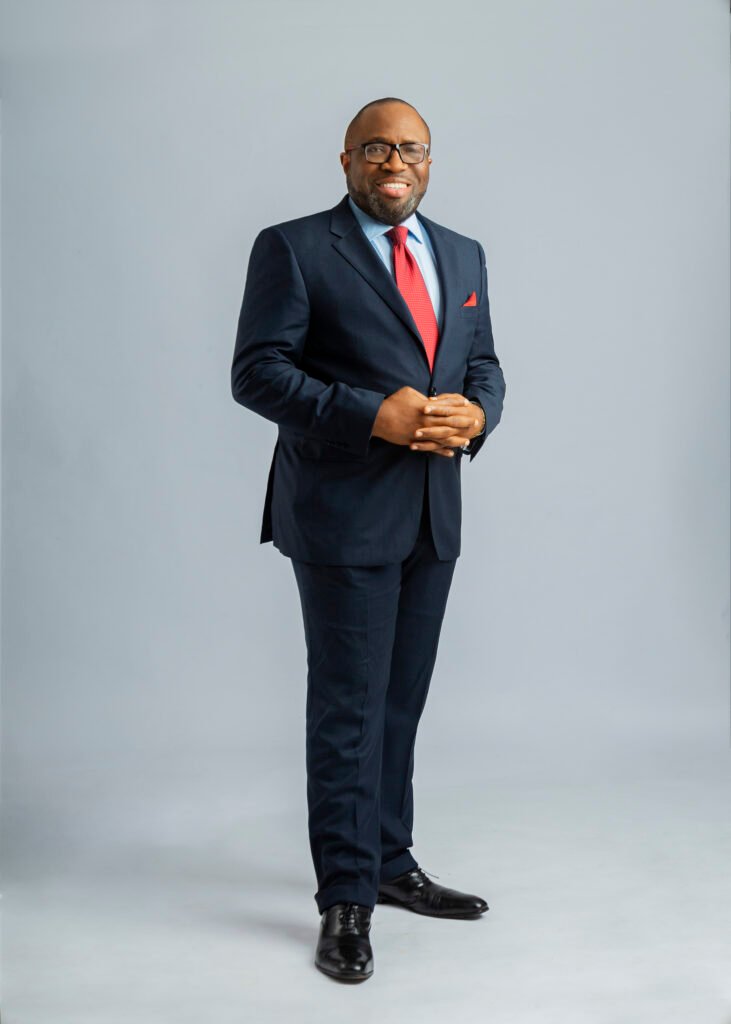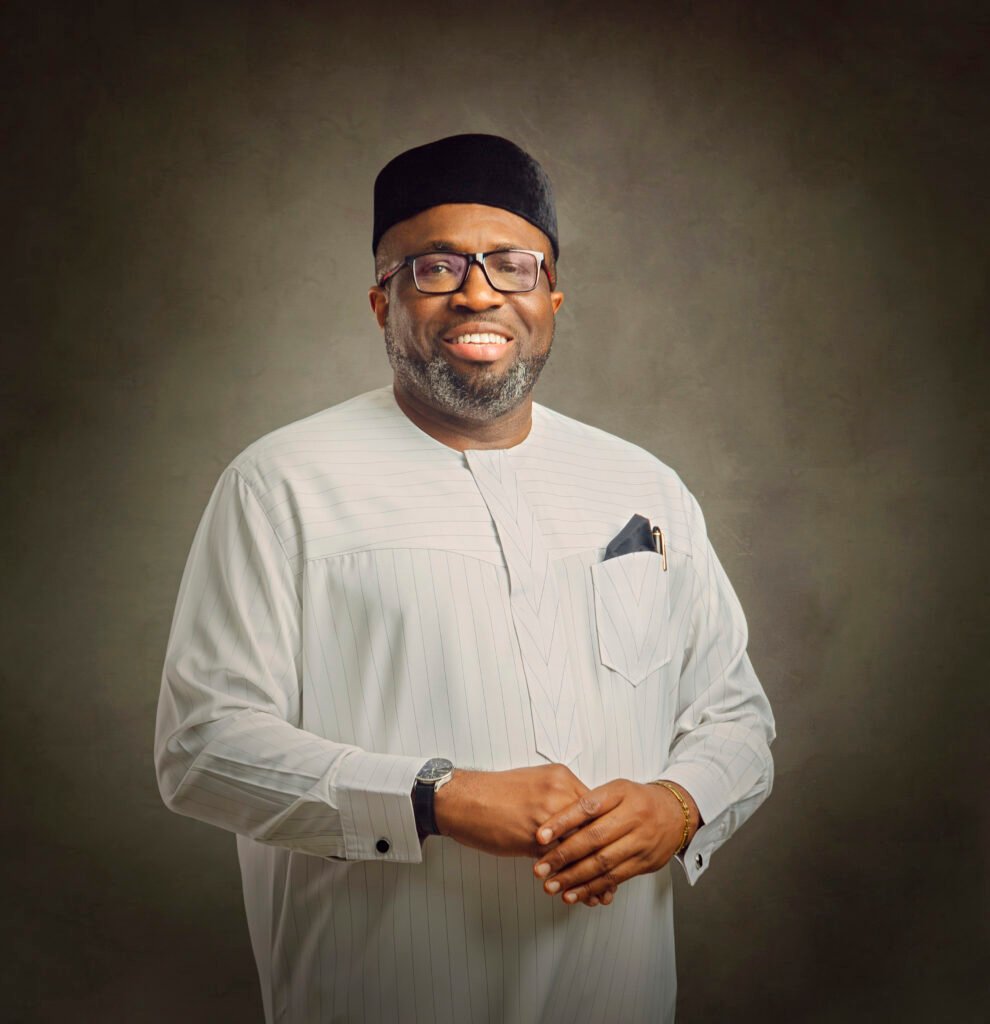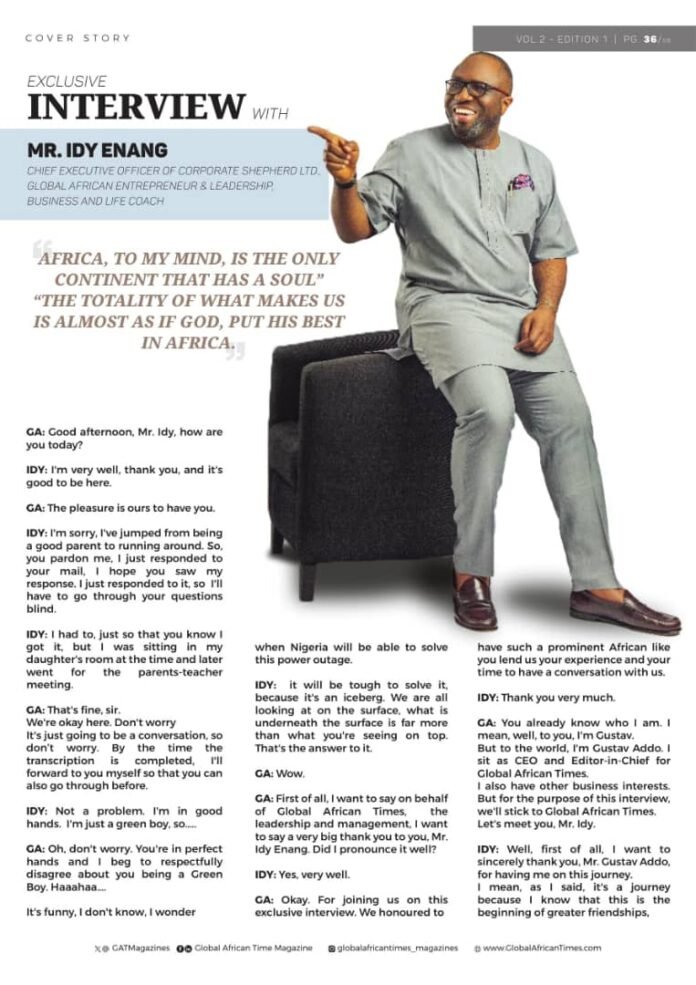“Africa, to my mind, is the only continent that has a soul”
“The totality of what makes us is almost as if God, put his best in Africa.”
In our most recently released Edition of the Global African Times Magazine, we had the rare privilege of having an Exclusive Interview with one of Africa’s finest Leadership, Business and Life Coaches – Mr. Idy Enang.

We are giving you a peek into excerpts of the highly-revealing and enlightening Interview..
Mr. Idy, it is said that the secret to Africa’s real prosperity lies in the youth. But you realize that very little is taught in schools of entrepreneurship. What is your opinion on this? What’s your take?
I think that is partly true and partly distorted. If we take it from a generational standpoint, go back to our great grandparents and before. There was the whole concept of trading, entrepreneurship. Yes. In terms of exchange, they may not have had currencies. However, they had cowries, and there was an exchange.
And they were with barter. So, what were they bartering? And what is entrepreneurship? It’s being able to, first of all, having a sense that there’s something around here that I need to do differently. Entrepreneurship, the real pathway to it is creativity.
It’s doing something and knowing that some other person would need those things. And then being able to orchestrate that exchange in order to favor me or favor us. So, if you look at it in a very mundane state or definition, that’s what entrepreneurship is.
Now, the ability is now premised on your level of creativity to see what others don’t see. And in seeing what others don’t see, you are going to now produce something that others will now see. And now it will make meaning to their lives, which is what we call value. Then there’s a value of exchange and that exchange is what now brings value to all. So, we start talking about value for money.
We’re talking about value et cetera. So, what we failed to do was to document and follow the process. I think our lack of documentation skills set us back a bit.
But something we had going for us was what we call oral tradition, which is passing on storytelling from one generation to the other, tales by moonlight. Now, imagine if that had been done, then there would have been a transgenerational transfer. But that didn’t happen as regards what we call business on entrepreneurship.
“The youth are the cornerstone of the future.”
When the white man settled in Africa or came through, whether the Portuguese or whatever, you found them straight here, they came and met a system that was working. And what they did was to leverage it, they did not bring something new.
They practically just leveraged on what they met. And it’s almost like what AI is doing today. So, someone’s going to tell me that AI is going to do that.
No, AI, without the human component, without you and I saying, this is what I want, AI is not going to create it for me. I have to put something to get the best of it. I think that’s the context we put it.
Now, I’ll tell you where we have also failed. Where we have failed is that transmission where we need to pass that same information from generation to generation and also innovate how we do things. So how does that start? It starts from education.
So early in the day when I went to school, we were not taught entrepreneurship, but we had things like civics and moral instruction. That was the code, almost telling you, this is a code of how to behave. And then we now started getting into the subtopics around those that had to do home economics, those that had to do social studies, those that had to do with social sciences. But we never integrated into a curriculum that said, this has to do with business transformation because Africa was not there. Africa was still very much traditional and it was because of how we found ourselves. So, look at the early Africans who made it.
The Chinua Achebe’s were more literary. Went into literary arts. And we were not into STEM, science, there was nothing like technology, engineering and maths.
But only a few of us that went abroad saw most of those things, and started coming back to infuse it into our system. That is where I think we began to miss it. So, the youth today, and we’ve always said that the youth are the cornerstone of the future.

To get the full interview, request for your complimentary copy by sending an email to ea.ceo.globalafricantimes@gmail.com or via WhatsApp to Naomi on +233 559943434.
Watch out for the continuation of the interview in our subsequent Weekly Newsletters, and the next Editions of our Magazines.
Next Edition of the Magazine comes up on June 24th, 2025.




